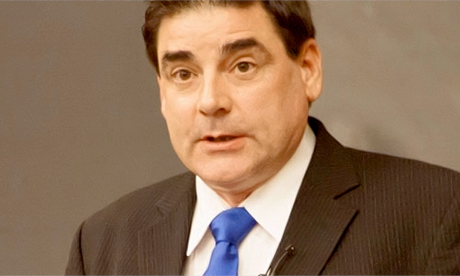Only twice in history has a pope asked for the resignation of an entire episcopate: Last week, when the entire episcopate of Chile offered their resignations to the pope, and in 1802, when Pope Pius VII removed both the orthodox, validly installed bishops of France and the rival slate of schismatic bishops never recognized by Rome and installed by the revolutionary regime.
In 1945, seven bishops who had collaborated with the fascist Vichy regime were sacked.
Covering up the sexual abuse of children, therefore, has now joined collaborating with Robespierre or Hitler as one of the things that forces a pope to take the extraordinary step of removing a bishop from office.
In all three instances, the hierarchy earned the odium plebis, the hatred of the people, which warranted their removal. They had proved themselves to be not shepherds but wolves, or wolf-helpers.
In the Gospel of Luke we read: “Jesus said to His disciples, ‘It is inevitable that stumbling blocks will come, but woe to the one through whom they come!
It would be better for him to have a millstone hung around his neck and to be thrown into the sea than to cause one of these little ones to stumble.’ ”
The Holy Father’s scorching commentary on the behavior of the Chilean bishops resonates with this kind of fervor. It is a pastoral fervor, to be sure, whipped into righteous indignation.
I do not share the desire that the pope accept all the resignations he was just offered, but I understand why so many sex abuse victims and victims’ advocates entertain that desire.
Fr James O’Connell told NCR, “If it’s an attempt by all the bishops to just be a team together, then it’d be so impractical that the pope cannot really accept all of those resignations,” worrying that the mass resignation might be a kind of “ploy.”
It is true that bishops and clergy, like members of the military, share a corporate sense of identity that the rest of us only experience in our families.
That corporate identity makes it appropriate for the bishops to tender their resignations as a body.
We do not know which bishops, if any, spoke up about the group’s apparent indifference to the suffering of the victims.
We do not know which bishops were guilty of covering up incidents of abuse and which were not.
I hope the pope is not afraid to draw the important distinctions that need to be made in deciding which bishops should stay at their post because they truly did no wrong and raised their voices in fraternal correction, and those who should retire quietly, which seems the appropriate penalty for bishops who did not cover up abuse but said nothing when others did, and which bishops should face yet stiffer penalties, those who actively participated in the cover-up. Continue reading
